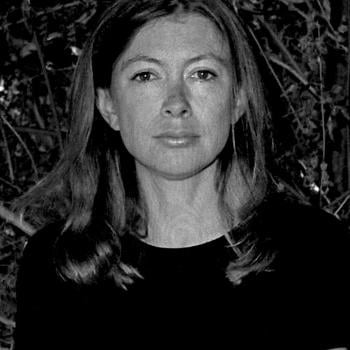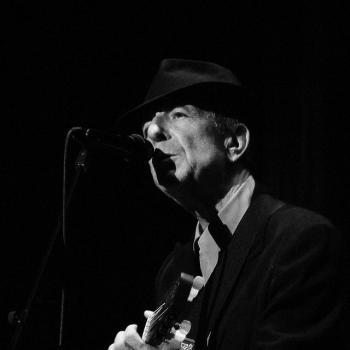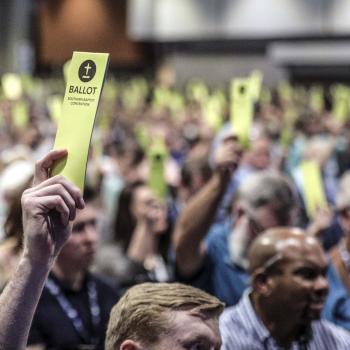Philip is our resident expert on World War I, and I’m excited to see him start a new series on its conclusion. But I do teach a travel course in Europe on that topic (plus a summer version of that tour that has a few spots open!) and write and speak often about how it has been remembered. So let me be so bold as to mark today’s 100th anniversary of the end of the war in western Europe by reflecting on how certain Christians participated in the war: army chaplains.
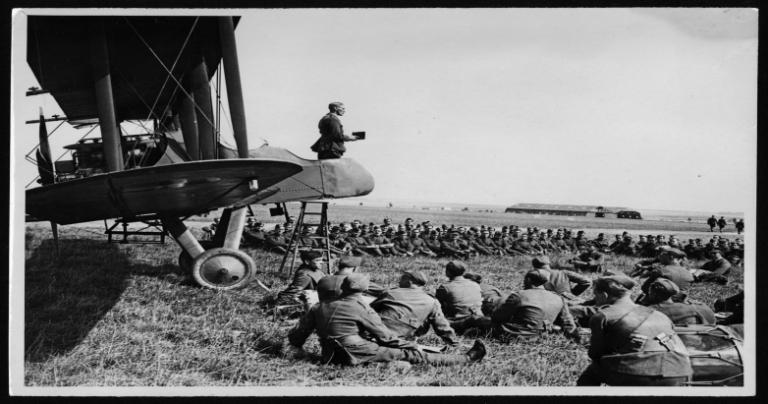
Five years ago, I was invited to give a talk about WWI to the chaplains’ corps of the Minnesota Army National Guard. They were curious how their predecessors had experienced a war that initially fused piety and patriotism. As Philip mentions in The Great and Holy War, one British chaplain “noted wryly that the initial declaration of war sparked ‘a run on the bank of God.'” But that same chaplain soon became a prime example of how the war caused religious questioning and a turn to pacifism.
His full name was Geoffrey Anketell Studdert Kennedy, but British soldiers called him “Woodbine Willie,” after the brand of cigarette he brought to the wounded. In the last year of the war Studdert Kennedy published his first collection of poetry, Rough Rhymes of a Padre, in which he considered how “the lovin’ God he looks down on it all, / On the blood, and the mud, and the smell, / Oh God if it’s true how I pity you / For you must be livin’ in hell.” Then in 1919 he came to wider attention for Lies!, which revealed him to be an increasingly confident spokesman for Christian pacifism (and Christian socialism — see ch. 3, “The Lie in the Industrial Revolution”). Here he wrestles with God’s relationship to war:
Does God will War? Is it part of His mysterious plan? Are the Militarist historians right? I answer: “If God wills War, then I am morally mad, and I don’t know good from evil.” War is the most obviously wicked thing I know. If God wills War then I am not an atheist, I am an anti-theist. I am against God. I hate Him. Does God hate War? Does He will its abolition? Does He will Peace on earth? Does God will that the Bible’s broken dreams come true? That to me is an obvious Truth—the first one. Why doesn’t He make them come True then? Because He can’t without our willing co-operation—that is to me another obvious Truth, the second one. Whatever God does for us must be done through us.
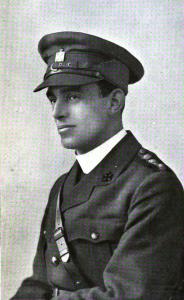
In an Easter sermon published in the 1923 collection The Wicket Gate, Studdert Kennedy reflected on Jesus’ words from the cross asking God to forgive his persecutors:
The Christ is faced with His enemies; and you realise the startling truth, that Goodness has no enemies; that it for ever separates the sinner from the sin; that it never deals with evil persons, but only with evil thoughts and evil dreams. You realise that for God, under any provocation whatsoever, hatred is impossible. He simply cannot hate. Nothing justifies it, not even this Crucifixion. This is the Goodness that would bring us back to realities. Nine-tenths of our wars and battles are fought in the land of dreams, with unreal people and unreal nations, which our hatred and our fear create. Germany hates and fears a monster called Britain, which does not exist; and Britain retaliates by hating and fearing an equally unreal Germany.
Studdert Kennedy was far from alone among Protestant clergy in exchanging nationalism for pacifism after 1914-18. But as the Canadian veteran and novelist Will Bird suggested, such a turn might have come too late. In his 1930 memoir, And We Go On (later as Ghosts Have Warm Hands), Bird remembers a soldier named Tommy, sharing his disillusionment with the church in an exchange with a comrade who is looking for the chaplain:
“Don’t start that argument. I was a member of the Methodist Church when I enlisted. Now I don’t know or care about anything connected with it…. Preachers and padres are not any better than brass hats. They’re out of touch with the men, and they’ve lost their hold.”
“Don’t you believe in God?”
“I do. If I didn’t I’d quit everything. But I’m going to have my own belief in my own way.”
Later in that memoir, the disillusioned Tommy runs into a chaplain determined to prove that he’s not just an apologist for the “brass hats.” It’s easy to imagine Studdert Kennedy being the model for this particular chaplain. But Tommy doesn’t respond as you might expect:
“No,” said Tommy. “I don’t want to hear any more twaddle. I’ve had to go on church parades but this isn’t compulsory, and once I’m out of this rig no man will ever make me listen to your stuff.”
The padre tried to argue. “We’re going to teach a real gospel now,” he said. “The war’s over and we’re going to, first of all, prove to the people what a horrible crime it is.”
“Don’t do that,” cried Tommy. “You’ll lose the few you’ve still got if you turn hypocrite. The war hasn’t changed. If it’s wrong now it was wrong in ‘14, and what did you shout then?”
The padre’s eyes flooded full. He could not talk.
It’s a commonplace that World War I accelerated the secularization of the West, and Bird’s memoir suggests how churches’ vocal support for the war ultimately alienated people in the pews. But it’s possible to imagine a different result. Consider a different war memoir, written by a liberal journalist in 1922.
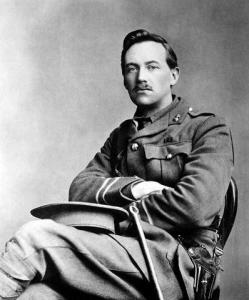
Charles Edward Montague was well into his forties when the war started and had to die his white hair black in order to volunteer. He rapidly rose through the ranks and ultimately spent part of the war escorting VIPs like H.G. Wells on visits to the Western Front. Along the way, he became familiar with a diverse array of chaplains, ranging from courageous heroes like Theodore Hardy (one of three British chaplains to win the Victoria Cross in WWI — posthumously, as he was also one of the 179 who died) to those like the one “drunk at dinner in Gobert’s restaurant at Amiens on the evening of one of the bloodiest days of the first battle of the Somme.” But most commonly, Montague found “the large, healthy, pleasant young curate not severely importuned by a vocation, the ex-athlete, the prop and stay of village cricket-clubs, the good fellow whom the desires of parents, the gaiety of his youth at the university, and the whole drift of things about him had shepherded unresistingly into the open door of the Church.”
While this type of chaplain had his good points (“He gladly frequented the least healthy parts of the line, and would frankly mourn the pedantry which denied him a service revolver”), Montague concluded that such padres were regarded warily by the soldiers with whom they tried to ingratiate themselves:
The vigour with which he threw off the parson and put on the man and the brother did not always strike the original men and brothers as it was intended. Your virilist chaplain was apt to overdo, to their mind, his jolly implied disclaimers of any compromising connection with kingdoms not of this world. For one thing, he was, for the taste of people versed in carnage, a shade too fussily bloodthirsty. Nobody made such a point of aping your little trench affectations of callousness; nobody else was so anxious to keep you assured that the blood of the enemy smelt as good to his nose as it could to any of yours…. surprising to say, [the men] secretly wanted a change from themselves; had the parsons really nothing to say of their own about this noisome mess in which the good old world seemed to be foundering?
His own father had left the Catholic clergy, but Montague didn’t celebrate the religious version of the larger disenchantment that gave his 1922 memoir its title. Nor did he treat secularization as an inevitability. Instead, Montague concluded that the churches had missed a massive opportunity for evangelism and discipleship. In a chapter entitled “The Sheep That Were Not Fed,” he borrowed a second metaphor from the Gospels:
When you want to catch the Thames gudgeon you first comb the river’s bed hard with a long rake…. For our professional fishers of men in the army the war did the raking gratis. The men came under their hands at the time of the most drastic experience in most of the men’s lives, immersed in a new and strange life of sensations at once simple and intense, shaken roughly out of the world of mechanical habit… living always among swiftly dying friends and knowing their own death at any time to be as probable as anyone’s…. Imagine the religious revival that there might have been if some man of apostolic genius had had the fishing in the troubled waters, the ploughing and sowing of broken soil…
Nothing perceptible came of it all.
Here’s a more complete version of the 2013 chaplains talk from which this post is derived.



